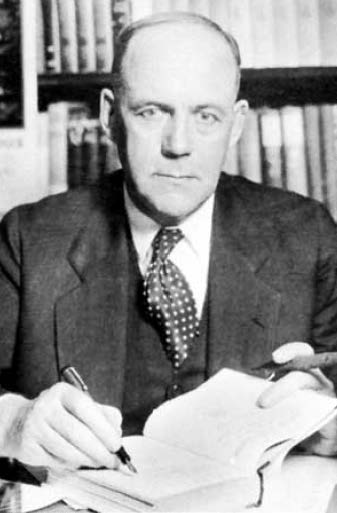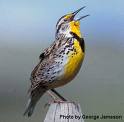Concerning our Heritage, by O.E. Rolvaag
March 14th, 2016
A quick read before going further, in today’s STrib, Geography of Trumism: Where support is strongest:
Hadn’t read that yet when I wrote this post, but it makes perfect sense. Which brings us to…
Omkring Faedrearven, by O.E. Rolvaag, known in English as “Concerning Our Heritage.” It’s floating around the house lately, because I figured that since Alan’s working on becoming a Minnesotan, he should read Rolvaag! He’s most of the way through Giants in the Earth, and Peder Victorius is waiting on the shelf.
Here’s one Rolvaag reader’s view:
We’re going to head west later this year, through Rolvaag’s South Dakota, well, also through Rolvaag’s Northfield on the way. What I remember most about trips through the Dakotas as a kid were the meadowlarks, and I wonder if they’re still there, because back in 2007 when we went from Denver through the Black Hills and South Dakota, I don’t remember hearing them, and I’ve been wondering ever since.
Anyway, back to Rolvaag. As Alan slogs through Giants, I’ve been reading Rolvaag’s thoughts about immigration, particularly relevant today. Rolvaag thought it was crucial to retain ones heritage, to know where we came from, and to bring our characteristics grown from our heritage to our new country. He thought that someone couldn’t “be all that you can be” without having that solid background knowing who we are. In his case, he was particularly concerned with keeping traits he identified as Norwegian, not in isolation, but to bring them to the larger culture. In the extensive introduction, it’s noted that:
Rolvaag felt very strongly that maintaining their ethnic identity was important for their self-respect and for their ability to function positively in the greater American society.
… Rolvaag was what we might today call a “cultural pluralist.” His vision of America was of a mosaic of ethnic communities, each preserving and promoting its own language, culture, and traditions, which could be united around American political ideals. … He rejected both assimilation and amalgamation and advocated the right and duty of each immigrant group to preserve its own language, institutions, and cultural heritage. Members of minority groups would of course learn English and participate in American institutions, but his vision of the United States was of a “cooperation of diversities.”
Something to think about in this day of mudslinging and innuendo and outrageous resistance to immigration. We need to remember where we came from, how it was when our grandparents or parents came to this country. Norwegians had a system of churches and schools, even colleges for those Norwegian farmers and then Norwegian women too! Norwegian newspapers and arts flourished in the Midwest. The Norwegian culture was kept alive through these efforts, and to this day, we regard ourselves as “Norwegian.” Or whatever nationality we are, that’s something we descendants of immigrants hold as a significant part of our identity, even us “mutts” who are a little of this and a little of that.
And that retention of cultural identity is exactly what some inflamed “Americans” are demanding not happen with the current round of immigrants, that they not even be let into the country, but for those who are, that they reject their identity, their customs, their religion if not Christian, their character at its core. How arrogant, and how misguided. That’s not how our parents and grandparents were as immigrants, they held onto their culture while learning what it is to be an American in this melting pot. Don’t for a minute forget that unless we’re native, that’s our background. We’re immigrants, that’s where we came from, that’s why we’re here, and that’s what we all did.
Consider what immigrants bring when they come to the U.S. Look in the mirror! Look at your family! Look at all immigrants have accomplished!
Super highwys, coast to coast, easy to get anywhere
On the transcontinental overload, just slide behind the wheel
How does it feel
When theres no destination-that’s too far
And somewhere on the way, you might find out who you are
Livin’ in America-eye to eye, station to station
Livin’ in America-hand to hand,across the nation
Livin in America-got to have a celebration
Rock my soul
Smokestack, fatback, many miles of railroad track
All night radio, keep on runnin’ through, your rock ‘n’ roll soul
All night diners, keep you ‘wake, on black coffee, and a hard roll
You might have to walk the fine line,
you might take the hard line
But everybody’s workin’ overtime
Livin’ in America-eye to eye, station to station
Livin’ in America-hand to hand,across the nation
Livin in America-got to have a celebration
I live in America, help me out,
but I live in America,
wait a minute
You may not be looking for the promise land,
but you might find it anyway
Under one of those old familiar names
Like New Orleans (New Orleans), Detroit City (Detroit City), Dallas (Dallas), Pittsburg P.A. (Pittsburg P.A.), New York City (New York City), Kansas City (Kansas City), Atlanta (Atlanta) CHICAGO & L.A.!
Livin in America-hit me
Livin in America-yeah,
I walk in and out
Livin’ in America
I live in America-state lines,
gonna make the prime, that
I live in America-hey
I know what it means, I
Livin’ in America…
Livin’ in America- hit me now, eye to eye, station to station
Livin’ in America
Livin’ in America-I feel good!

